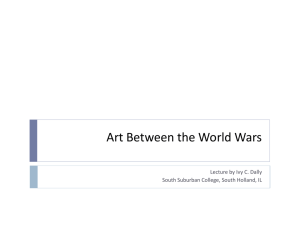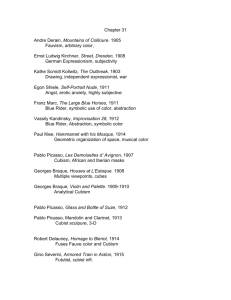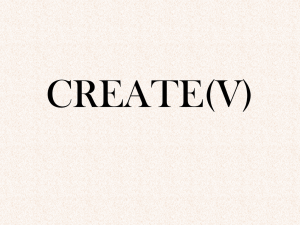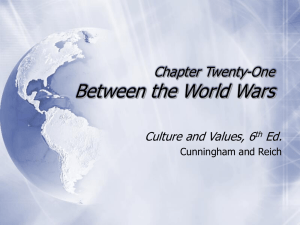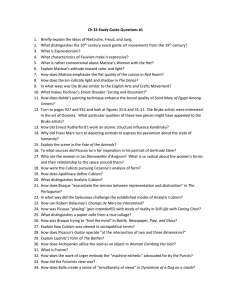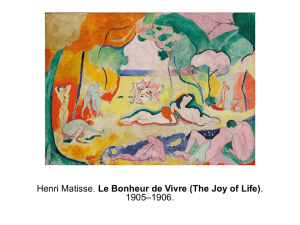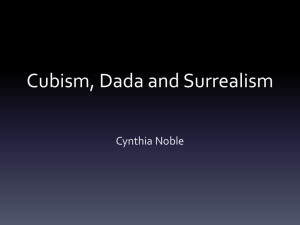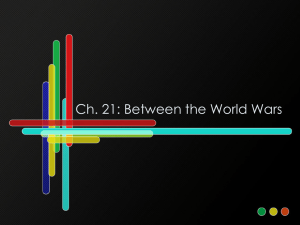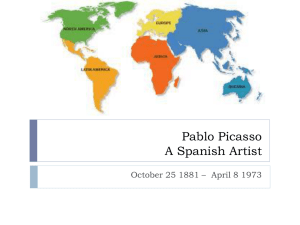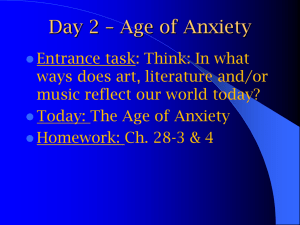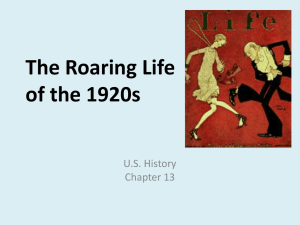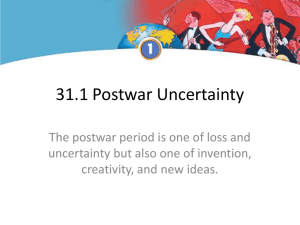Ch 13 sec 1 Post War Social Changes Waterson
advertisement
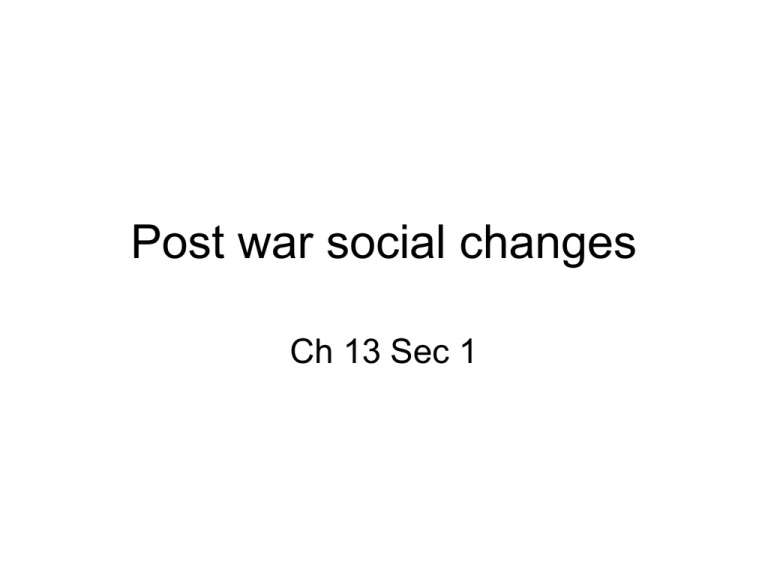
Post war social changes Ch 13 Sec 1 Quick Write • How do you think the older generation views your generation? Explain. What was life like during ? The Roaring Twenties Jazz Age *The roaring twenties *A new form of music started in the U.S.jazz *Duke Ellington & Louis Armstrong were leading musicians. *Most modern music had been influenced by jazz. Women *Most saw limited progress *Many labor saving devices had been invented to give them more time *1920-Women get the right to vote RT cont’d Reactions *Prohibition *Rise in Christian fundamentalism *Scopes put on trial for teaching evolution Women’s dress - 1920 Women’s dress - 1900 “She wore a knitted hat, with hardly any brim, of a flame or bonfire hue; a henna scarf; two strings of Betty beads, of different colors, twisted together; an open short coat, with ample pockets; a skirt with vertical stripes… her stockings were woolen and of brilliant hue.” • Psychologist G. Stanley Hall Tomato Female Dollar Clam Ducky Very Good Bank’s Closed No Kissing/Making Out Model T Flivver Illicit Bar Speakeasy The Ultimate Bee’s Knees Egg Cheaters Bell Bottom Sinker A Person Who Lives the Big Life Eyeglasses A Sailor Doughnut The brutality of WWI caused writers to question accepted ideas about reason, progress, religion, anxieties about the future, and fear of the future Poets and Writers • T.S. Eliot described a world of ”empty men and hollow dreams," showing the 20s weren't perfect Poets and Writers • F. Scott Fitzgerald wrote The Great Gatsby, a book that exposed the superficiality of the 1920s lifestyle. Ernest Hemingway One of the most famous American writers of all time; wrote about antiheroes (or flawed main characters); wrote in a direct or simple way Harlem Renaissance • *African American cultural awakening. • *Cultural pride expressed Harlem, a neighborhood in New York City, was the center of the African American political, cultural, and artistic movement in the 1920s and early 1930s. Causes Growing African American Middle Class: developed as a result of improved educational and employment opportunities for African Americans. Impact The Harlem section of New York City was transformed from a deteriorating area into a thriving middle class community. Before After • Quick Write • Do you think the government should try to regulate the moral behavior of its citizens? • Conceived by the Progressives • Was a plan to stop people from drinking alcoholic beverages • Added to the Constitution in 1919 • Made the production, sale, and transportation of alcoholic beverages illegal • Reduce Crime • Reduce Poverty • Lower Death Rates • Improve the Quality of Life • Speakeasies were one of the many ways that people during the 1920's and early 1930's obtained illegal alcohol. • Treasury Dept already had agents to enforce federal taxes • The 18th Amendment now gave the power to the federal government to use police powers – A governments power to control people and property in the interest of public safety, health, welfare, and morals • Prohibition contributed to organized crime in major cities • Underground gangs battled for control of the booze racket • 1923 – Al Capone emerged as leader of organized crime • Controlled Chicago liquor business by killing competitors • Prohibition failed because the policy was unenforceable • Only 5% of smuggled liquor was actually stopped from coming into the country • Gangs overpowered or bribed authority figures • Instead of lowering the crime rate prohibition actually lead to an increase in crime. • Large amounts of money could be made from illegal bootlegging. • The Amendment ended prohibition in 1933 st 21 New Scientific Theories Marie Curie Einstein *Discovers some elements release charged particles *radioactivity *Introduces his theories of relativity *Leads to creation of atomic power Fleming *Accidentally discovers Penicillin *Leads to antibiotics Freud *Introduces the world to subconscious *Pioneers psychoanalysis Sigmund Freud Albert Einstein Modern Art Cubism *Pre WWI-3 dimensional & complex patterns. Abstract *Lines, colors & shapes. *No recognizable subject matter. Dada Surrealism • Features the element of surprise, unexpected juxtapositions and non-sequitur. • Attempted to portray the subconscious. • Favored irrational ideas. The Persistence of Memory, Salvador Dali Surrealism Artist-Salvador Dali By Max Ernst Analytical Cubism Woman With A Guitar, Georges Braque Le Guitariste, Pablo Picasso Synthetic Cubism Three Musicians, Pablo Picasso Garcon a la Pipe – 1905 So what are Picasso’s worth? $118,000,000 2004, #6 Dora Maar Au Chat $101,800,000 2006 #8 Lesnoces $85,700,000 1989 #14 Yo, Picasso $83,200,000 1989 #17 $70,800,000 1989 #23 Acrobate et jeune Arlequin $70,200,000 1988 #24 Femme aux Bras Croisés $62,900,000 2000 #25 The Most Expensive… Jackson Pollock, 156.8 Million Dollars Dada Movement Rejected all traditions & believed there was no sense or truth in the world. Intended to shock & disturb. Fountain, Marcel Duchamp Dada Cut with the Dada Kitchen Knife through the Last Weimar BeerBelly Cultural Epoch in Germany, Hannah Höch Architecture House designed by Wright entitled “Falling Water.” It is now a museum. Architect Frank Lloyd Wright felt that the function of the building should determine its form.
